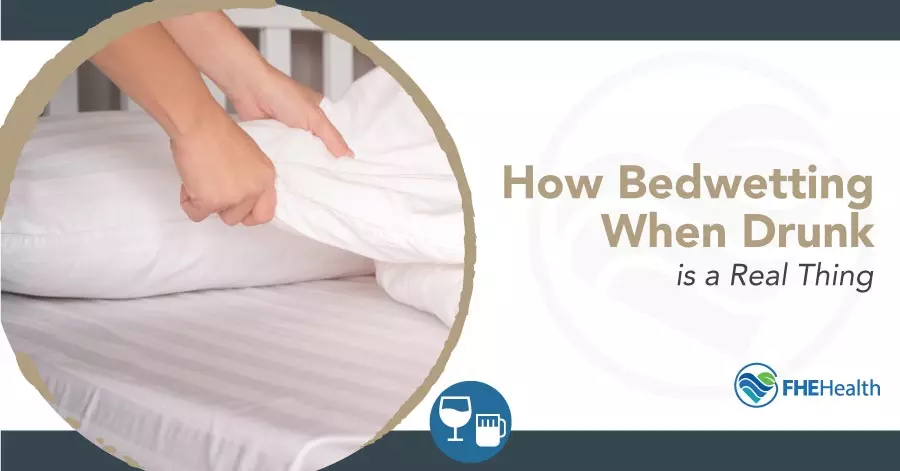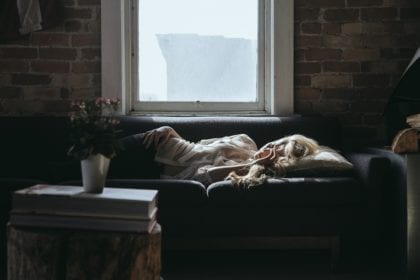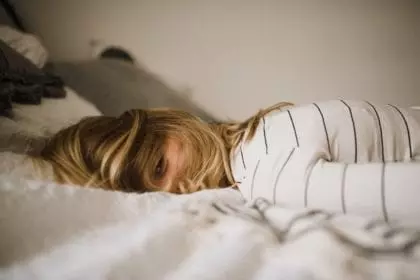
This article has been reviewed for accuracy by our peer review team which includes clinicians and medical professionals. Learn more about our peer review process.
Bedwetting sounds like something that only happens to small children, a trend that’s largely over by the time potty training is complete. However, there’s another subset of the population that may, from time to time, wet the bed: highly intoxicated adults.
After you engage in a night of blackout drinking, it’s unfortunately not uncommon to wake up with wet sheets and clothes. For most adults, this is highly embarrassing to deal with. Bedwetting while drunk can carry a lot of shame, as bladder control is something most adults without any kind of compromising health condition have been managing for decades, and the problem can, at times, signal health issues that need to be addressed.
This article will explore the science behind bedwetting when drunk, its health implications, risk factors, strategies for prevention, ways to cope, and how to overcome the stigma. We’ll also discuss when this tendency could indicate an underlying drinking problem.
Understanding Bedwetting When Drunk: The Science
An estimated one in six U.S. adults binge drinks around four times per month, with an average of seven drinks consumed per session. But binge drinking alone isn’t correlated with bedwetting, and you’ve probably experienced a night of heavy drinking without wetting the bed. So when does bedwetting happen and why?
Bedwetting isn’t something that happens at random for no reason; there’s science behind urinary incontinence that explains why individuals who are severely intoxicated are at a heightened risk for drunk bedwetting.
An Explanation of the Phenomenon
When a person is heavily intoxicated, their judgment, coordination, and control over bodily functions can be significantly impaired. This can potentially lead to loss of bladder control, resulting in involuntary urination, also known in popular slang as “peeing yourself” when drunk. While it may occur in some individuals, it is important to note that this is not a universal experience for everyone who consumes alcohol.
It is worth mentioning that experiencing loss of bladder control when intoxicated should not be considered normal or desirable. It can be embarrassing and may indicate excessive alcohol consumption or potential alcohol-related problems. If this becomes a recurring issue or is causing distress, it is recommended to seek advice from a healthcare professional or consider reducing alcohol consumption.
Individual and Alcohol-Related Factors
Different factors can contribute to bedwetting while intoxicated. Some of them vary with the individual, such as the amount of alcohol consumed, their tolerance, and their overall physical and mental state. Other factors relate more to alcohol and its impact on the body, especially its effects on bladder control and its influence on sleep patterns.
Alcohol’s Effects on Bladder Control
Alcohol’s effects on bladder control are a main contributor. “Acetaldehyde,” a chemical byproduct of metabolized alcohol, can exacerbate the need to urinate. Meanwhile, drinking and metabolizing alcohol also increase the body’s production of urine so that fluids in the system build up much more quickly.
Alcohol also suppresses a key antidiuretic hormone, or ADH, in the brain. On a normal day, when not impaired, this hormone sends signals to the kidneys to regulate urine production so the body doesn’t deplete its hydration reserves. However, alcohol can compromise this process, resulting in the overproduction of urine. This change in ADH can continue after you pass out for the night, leading to urine levels that the body simply can’t control.
Muscle Function and Caffeine’s Role
In addition to affecting ADH levels, alcohol can also negatively impact the detrusor muscle located in the bladder wall, which plays a role in signaling a need to pee. When inhibitions are lowered and bodily signals are obscured by alcohol, it can be easy for you to miss this kind of sign.
Drinkers who favor beverages that include caffeine, like rum and Coke, vodka and Red Bull or Irish coffee, can be at heightened risk. Caffeine can cause the detrusor muscle to contract, signaling a need to urinate before the bladder is full. This can drive urination, too.
How Alcohol Impacts Sleep Patterns
Alcohol’s influence on sleep patterns is another important physiological dynamic that contributes to bedwetting. If someone binge drinks or takes alcohol with other medications, such as anti-anxiety drugs, they may experience a blackout or especially deep sleep (although research shows that alcohol ultimately disrupts sleep over the course of a night).
Health Implications
Alcohol-related bedwetting can have important health implications, as well as potential long-term consequences, if not addressed.
Potential Health Risks Associated with Bedwetting When Drunk
Bedwetting in adults (“nocturnal enuresis”) is usually a sign of an underlying disorder, according to the Cleveland Clinic. In a similar vein, bedwetting when drunk can be a sign of an alcohol use disorder and a warning that drinking is no longer under control. If urinating while sleeping after drinking alcohol is something that happens more than once, it could be time to seek medical help.
Impact on Mental Health and Self-Esteem
Unaddressed bedwetting can be a source of embarrassment, shame, and poor self-esteem that, in turn, can adversely affect one’s mental health, giving rise to anxiety or even depressive symptoms.
Long-Term Consequences if Left Unaddressed
Not addressing an underlying substance use disorder can have serious long-term consequences by leading to far more serious health issues that involve major organs of the body. Over time, a pattern of drinking too much can lead to a terminal diagnosis, such as heart and liver disease, stroke, and many cancers.

Identifying Risk Factors
Certain risk factors can make a person more susceptible to bedwetting while intoxicated….
Consumption and Tolerance
A high frequency and quantity of alcohol consumption is one risk factor. So is an individual’s tolerance for alcohol. Most people drink far more when seeking intoxication than they would under normal circumstances, particularly when beer or wine is involved. Heavy drinkers can require a lot of alcohol to get drunk, which can result in a fuller bladder and more frequent urination.
Timing can make this worse, too. If you drink a lot of alcohol in the evening or at night, you may hit the sheets while alcohol levels are still building in the body. When the bladder continues to fill after a drinker passes out, bedwetting becomes more likely.
Underlying Medical Conditions
Bedwetting in adulthood, though quite rare, can have many medical causes. Some examples might include a blockage in the urinary tract, bladder issues, diabetes, an enlarged prostate, or a neurological disorder, among still other medical conditions, according to the Mayo Clinic. Bedwetting while drunk could indicate a substance use disorder and/or another of these conditions.
Strategies for Prevention

For those who’ve experienced wetting the bed when drunk and want to avoid further episodes, there are some steps that can be taken to minimize the likelihood of future problems.
Moderating Alcohol Consumption
- Drink less alcohol: Going to bed with a buzz rather than getting drunk to the point of blacking out from severe intoxication significantly decreases the chances of bedwetting. Drinking less is a good lifestyle choice, too.
- Switch to hard alcohol: As 1.5 ounces of liquor has roughly the same alcohol content as 12 ounces of beer, it’s possible to drink less while still getting a buzz. Next time you go out, skip the pitcher of beer and have a gin and tonic or whiskey neat instead. However, severe intoxication in any form should be avoided.
- Slow down: Chugging beer after beer may be fun, but it’s likely to lead to an increased need to urinate. Instead, take a break between drinks and give the alcohol time to metabolize. It might be a little harder to get a buzz this way, but slowing down alcohol intake is a great way to prevent alcohol-related problems, bedwetting or otherwise.
Hydration Strategies
- Skip the caffeine: When enjoying a night out, skip beverages that have caffeine. Even if a rum and Coke has long been your favorite, the potential ramifications aren’t worth it. Some bars may also have caffeine-free versions of popular sodas, so don’t be afraid to ask the bartender for alternatives.
Bathroom Routines Before Bed and in the Night
- Use the bathroom right before bed: After a big night of drinking, a bathroom stop immediately before bed is imperative. Even if you went recently or are so tired you can’t fathom any activity that isn’t falling straight into bed, relieve yourself first. An extra stop in the bathroom can be the difference between a peaceful night and wetting the bed when drunk.
- Set an alarm: Setting an alarm in the middle of the night may sound unpleasant, but it’s a better option than pee-soaked sheets and blankets. Pick a time two to four hours after going to bed and set an alarm or two. When it goes off, head to the bathroom, even if you don’t think you have to go. The effects of alcohol can be misleading.
Seeking Professional Help if Necessary
If these strategies are not effective or seem too difficult to enact or maintain, consult your doctor. They should be able to advise you about the underlying problem and how to seek treatment. If the bedwetting occurs only when you are intoxicated, your doctor may refer you to a medical facility like FHE Health that specializes in treating substance use issues.
Coping Mechanisms and Strategies for Bedwetting When Drunk
If you’ve experienced alcohol-related bedwetting more than once, it may mean that you were so drunk that you lost consciousness and/or were not able to control your bodily functions. This realization may cause some anxiety, shame, and a sense of helplessness. After all, nobody can really control their bladder if they have passed out.
Practical Steps to Manage the Aftermath
After you wake up in the morning and discover your sheets are wet and smell like urine, a good next step is to schedule an appointment with your doctor or therapist. Be honest about the issue you’re experiencing, how often it occurs, and your concerns that it may point to an underlying disorder, whether a substance use disorder or another condition. Ask for your provider’s advice about next steps, including substance use treatment. Your provider should be able to provide you with a referral to a therapist or facility like FHE Health.
Seeking Support from Friends and Family
If medical treatment for a substance use disorder is the next step, you may also benefit from seeking support from friends and family. They may be able to see aspects of the problem that you have not noticed. They also may be able to support your decision to get treatment by helping with costs, transportation, childcare, or other logistics.
Counseling or Therapy Options
Some therapies, like Cognitive Behavioral Therapy, can help people reduce their drinking and manage the uncomfortable thoughts and emotions associated with alcohol-related bedwetting. If a drinking problem is at the root of bedwetting, CBT can encourage healthy behavioral changes. When outpatient counseling is not enough to overcome a drinking problem, your therapist should also be able to suggest inpatient care options that will help.
Seeking Professional Help for Wetting the Bed After Drinking Alcohol
There is never an ideal time to seek professional help, but it is always a good idea to address alcohol-induced bedwetting as soon as possible.
When to Consult a Healthcare Provider
The question of when to consult a healthcare provider hinges on whether bedwetting when drunk has happened more than once. If so, prompt medical attention is critical to address the underlying problem.
Available Treatments and Interventions
Treatments and interventions are tailored to the person. Sometimes, an alcohol moderation management plan, ideally supported by work with a therapist, can help the person decrease their drinking. In more severe cases, inpatient alcohol detox and treatment may be necessary.
Medications
Medications such as acamprosate, disulfiram, and naltrexone can be prescribed to treat alcohol use disorder, its symptoms, and the cravings to drink.
Behavioral Therapies
Numerous behavioral therapies have been effective at managing alcohol use disorders. In addition to CBT (mentioned above), 12-step recovery groups, couples counseling, and relapse prevention treatment (a kind of CBT) can be useful. So can contingency management, a therapy that uses positive and negative incentives to support a sober lifestyle. Motivational enhancement therapy has also helped many people find the internal motivation they need to sustain a healthy life.
Alternative Approaches
Alternative approaches abound. Yoga, acupuncture, mindfulness meditation, and neurotherapies such as biofeedback can support recovery from alcohol use issues.
Addressing Stigma and Shame
Inevitably, there is a stigma surrounding bedwetting when drunk. This stigma is not just about the embarrassment of bedwetting. It can also entail a sense of shame about not being able to control one’s drinking.
Encouraging Open Dialogue and Support
The problem with stigma and shame is that they can discourage people from getting help for a legitimate medical issue. Open dialogue and support help. When people have permission to talk about what they are experiencing without judgment, they are more likely to seek treatment.
Highlighting the Importance of Empathy and Understanding
Empathy and understanding are also important. It takes a lot of courage to admit to a loved one that bedwetting when drunk is a problem. Friends and family members who are on the receiving end of these admissions are most supportive when they listen empathetically and refrain from expressing judgment.
Address Bedwetting With Treatment at FHE Health

Peeing the bed when drunk may be a one-time event following a night of youthful indiscretion and a single humiliating occurrence rather than a habit. However, should this occur more than once, a problem may be at hand.
Getting so drunk you lose bladder control can require a significant amount of alcohol, especially for those who are regular or heavy drinkers. Frequent laundry and mattress cleaning often indicate an inability to stop drinking before the tipping point, and that’s rarely a good sign. When alcohol use spirals out of control to this extent on a regular basis, getting help can be essential.
If you or someone you love has a problem with alcohol, FHE Health is here to help. Our comprehensive step-down approach to treatment can provide the tools necessary to achieve and maintain sobriety, helping those with an alcohol use disorder reclaim their lives. Contact us today to learn more.






